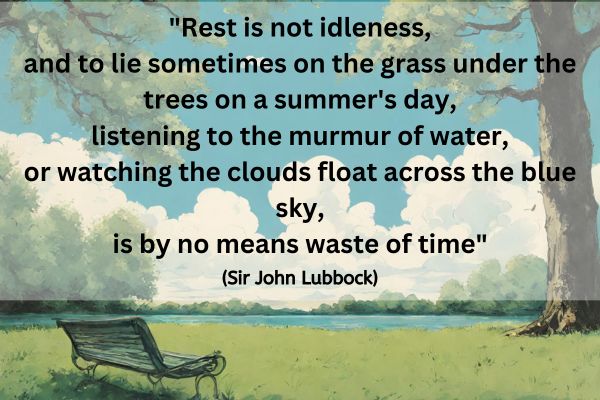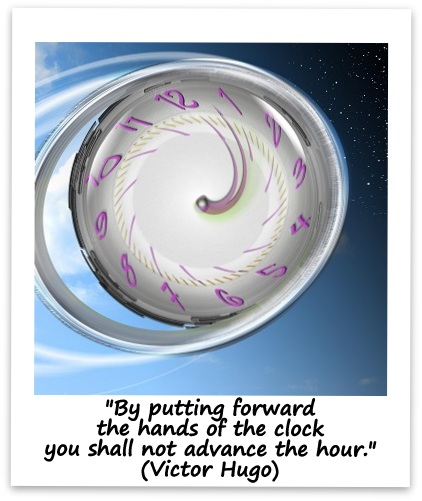Running a coaching busines successfully is the focus of today’s guest post where Alison Beierlein shares some of her expertise and knowledge in:
Five things to do now to run your coaching practice like a CEO
By Alison Beierlein

There are so many aspects to take into consideration when starting and running your own business; it can be overwhelming. Many coaches start out as typical solopreneurs – doing everything themselves – and some are missing out on their potential for growth, prosperity, and success by remaining in this limiting structure.
In a hypothetical situation, if you had to apply and interview yourself for the CEO role of your coaching practice, what characteristics would you be looking for?
Now, let’s pause for a moment to include here, that when brainstorming these characteristics, you need to take away any and all filters. There are no limitations here, so let your mind come up with the absolute ideal candidate for this role.
 Go ahead, grab a paper and pen and jot down the most important characteristics that you would be looking for in this person.
Go ahead, grab a paper and pen and jot down the most important characteristics that you would be looking for in this person.
When I do this activity, some of the characteristics and skills that come to mind for me are:
- Ability to focus
- Creativity and flexibility in overcoming challenge
- Solid foundational understanding of business planning and finances including cash flow forecasting and budgeting
- Ability to sell and close deals
- Strategic business growth strategies including scalability
- Strong sense of integrit
- Trustworthiness, ethical behavior and clear value
- Hunger for continual improvement
- Strong leadership and ability to provide clear direction
- Grit
- Project management and planning for goal achievement
- Ability to assess the value of opportunities
- Zone of genius (whatever the superpower is that you sell to your clients)
There are more, but this is a good start. The point of this exercise is to highlight the following two insights:
As the CEO of the company, you’re not spending your time with low-level administration.
As the CEO of the company, you ARE spending your time on the things that no one else can decide or do for you,
such as:
a. Giving the tone and direction of the company
b. Big picture planning on where you want to take the company
 If you take a moment to assess, what you are currently spending your time on in our business, what kinds of activities ARE you doing?
If you take a moment to assess, what you are currently spending your time on in our business, what kinds of activities ARE you doing?
Be honest. Are these activities driving your revenues?
Are you spending your time in Canva trying to create your logo?
Are you spending hours trying to figure out some cloud-based technology that you’re not familiar with yet (such as creating your landing page)?
Are you following up with clients who had a declined payment because their credit card expired?
If the answer is yes, then I highly suggest you tune in here.
Keep reading for my top five tips to ensure you are running your business like a boss.
1. Delegate
As a successful coach and CEO of your business, your own time is worth too much to be spending on tasks that don’t bring in money. You need to be focussing your own time only on the things that only you can do, and that bring in a high return on your time investment.
If you’re just starting out, you might think you can’t afford to hire someone to help. How can you delegate things to someone if you can’t even pay yourself? Well, for starters, you can sell something you already own. Go through your house, see what you can part with, and sell it on Craigslist, a local Facebook Buy and Sell group, have a garage sale, post it for sale on your local pinboards and even just broadcast it out to people you know. You can surely sell at least a few things that can bring in some money to give your cash flow a boost.
Failing that, jot down any other services you could provide for money, that would bring in more than it would cost you to hire an assistant. If you can easily provide guitar lessons for $50 / hour, and an assistant might cost you $20 / hour. Sell a few hours of guitar lessons and then use that money to buy over twice the amount of time from someone else who is efficient with your lower level business related tasks, to help get you started.
If you absolutely can’t afford to hire out these types of tasks, then try to follow this strategy: Work in your zone of genius as much as possible and continually try to increase the ratio of time spent on money-making tasks to non-money-making tasks as time goes on. Your ultimate goal should be spending 98% of your time doing only money-making, high-level work, and contracting out or having staff do absolutely everything else.
If you have enough cash flow and are already earning a steady income from your coaching practice, then brainstorm any tasks that you are currently doing that are time-consuming and could easily be handed off to an assistant. Then once you’ve delegated them, use the time you have freed up in your schedule for money making activities, such as booking more discovery calls or creating more content.
2. Get your head in the game
As CEO of your coaching practice, you need to be mentally in the game if you want to be successful. What does this entail? You’re a coach, so you’re probably already familiar with the whole idea of having a growth mindset. But do you always practice what you preach? Do you have what it takes to build up your mental toughness?
Mental toughness is the ability to be resilient and maintain confidence in your abilities. In an article from September 17, 2010, on Forbes written by Christine M. Riordan titled Six Elements of Mental Toughness, she explains that being a successful athlete isn’t solely a result of skill, knowledge, or ability. Success partially stems from having mental toughness.
Mental toughness is the ability to handle stress, recover quickly from setbacks, adapt and create strategies to overcome unforeseen hurdles, handle competition, and to have the courage to make the hard decisions to uphold your integrity, values, and ethics.
This need for the mental resilience doesn’t just apply to athletes – it’s universal and applies to everyone who is working on growing a business.
Do you ever find you’re allowing yourself to be dragged down because you’re comparing yourself to others (even other people you have never met before)? Stop doing this immediately. Nothing good will come from comparing yourself to someone else’s success unless you are celebrating it with them and looking at it as a case study from which you want to learn.
Keep your attention focussed on the next steps that will move you towards your own success and take continued and steady action towards achieving your own goals.
3. Persevere, persevere, persevere
Don’t let setbacks deter you from moving forward. Use your failures as learning opportunities. Do better next time. The law of averages dictates that eventually, you will fail at something. But don’t let it determine your self-worth or sway you from steering straight ahead towards your goals. Each mini failure is just a part of your journey. As CEO it is your job to dust yourself off, make any minor adjustments to your plan as you need to get back on course, and then keep moving forward.
4. Generate multiple streams of income
When operating as CEO of your coaching practice, it can be very limiting if you put all your eggs in one basket – one stream of income. Taking on clients solely in a 1-on-1 setting will ultimately limit your income earning potential because you can only take on so many clients every month. Time is your limiting factor.
Even if you’re operating in your zone of genius, spending your time solely on the money-making tasks that only you can do, if you’re exchanging your time as your sole offering, you effectively cap your income. You can realistically only raise your rates so much, depending on what the market will bear.
A more well-rounded business model will ensure that you aren’t relying on only one income stream. If you can fill out your services to offer products or services that are scalable, you can grow your reach, increase your impact, help more people, and do it all with less time.
Scalable business models include products and services that generate income, even when you’re not actively working directly with a single client. These passive income streams could include
- Group coaching (online or in person
- An information product or mini-course
Take the core principles that you go through while working with your 1-on-1 clients and package them up into a self-study course that your clients can buy and work through on their own time) - Affiliate sales or referrals
If you know of someone who offers high-quality coaching, mentoring or training in a very specific specialty niche and your clients could benefit from working with them, you could earn money through affiliate sales of their products/services or referral fees. Of course, I only recommend this if you truly stand behind the quality of their offering and have your clients’ best interests in mind.
Once you have these various income sources mapped out, you can design your business plan to reflect the various streams. You can stack them up, boost the value of one offering by including one of the others as a bonus ultimately increasing the earning potential per client while adding incredible value.
5. Create clear and concise goals and a plan to get you there
If you want to run your business like a professional, invest the time in creating a full business plan. You can’t know what direction you’re going in if you don’t have a clearly defined vision for your business.
Even if you aren’t running a brick and mortar, traditional style business, the value in having a thorough business plan in place is very high. As CEO of your company, you want to have a strong vision for the business. You need direction. You want to set the tone for all actions and decisions that you make as a business owner.
Every major decision you make should be supporting this bigger vision. You should gear your marketing, branding, growth, and sales strategies towards moving you closer towards your goals and keeping you in line with your company’s purpose, vision, and mission. Every investment (monetary or otherwise) has a clear purpose. Every product, service or other sources of revenue should be in line with the customer experience you envision for your business.
As your business grows and evolves, you need to review this plan (annually at least) and make any adjustments as required. It might seem tedious at times, but the time you invest in creating your business plan and reviewing it on a regular basis, the higher your chances are of achieving the things you set out to attain.
About Alison Beierlein
 Alison Beierlein has international training and experience and over a decade of experience in business management. She coaches female entrepreneurs in the areas of leadership, empowerment, confidence, business growth, and self-development. Her goal is to empower women to uncover their larger purpose and design clear strategies to help them achieve their full potential.
Alison Beierlein has international training and experience and over a decade of experience in business management. She coaches female entrepreneurs in the areas of leadership, empowerment, confidence, business growth, and self-development. Her goal is to empower women to uncover their larger purpose and design clear strategies to help them achieve their full potential.
In January, 2017, Alison is launching her own show called the License to Receive Podcast where she interviews thought leaders and presents case studies in the areas of abundance, self-improvement, career development, marketing, and entrepreneurship.
After tragically losing her father, Alison has begun raising awareness about mental health and donates a portion of her coaching revenue to the Canadian Mental Health Association and the Centre for Addiction and Mental Health
Connect with Alison Beierlein
Website: www.licensetoreceive.com
Instrgram: https://www.instagram.com/alisonbeierlein/





 Go ahead, grab a paper and pen and jot down the most important characteristics that you would be looking for in this person.
Go ahead, grab a paper and pen and jot down the most important characteristics that you would be looking for in this person. Alison Beierlein has international training and experience and over a decade of experience in business management. She coaches female entrepreneurs in the areas of leadership, empowerment, confidence, business growth, and self-development. Her goal is to empower women to uncover their larger purpose and design clear strategies to help them achieve their full potential.
Alison Beierlein has international training and experience and over a decade of experience in business management. She coaches female entrepreneurs in the areas of leadership, empowerment, confidence, business growth, and self-development. Her goal is to empower women to uncover their larger purpose and design clear strategies to help them achieve their full potential.



